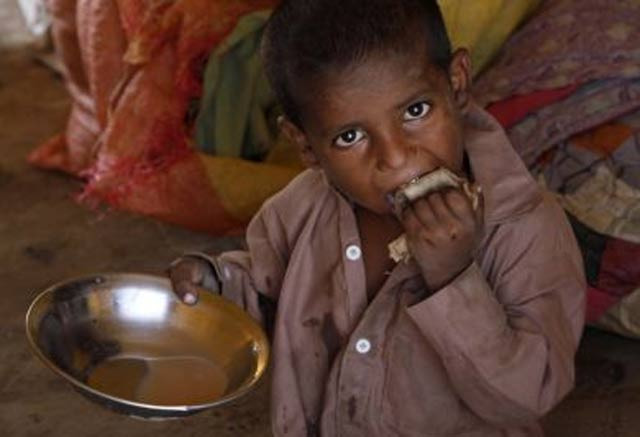Pakistan ranks 149/188 on SDG index
Hepatitis B, childhood obesity, violence and alcohol consumption on the rise

Hepatitis B, childhood obesity, violence and alcohol consumption on the rise. PHOTO: REUTERS
Launched recently at a special event at the UN general assembly and published in The Lancet, the analysis assesses countries by creating an overall index score on a scale of zero to 100. Pakistan shares the score of 38 with Bangladesh and Mauritania — six places behind India and way behind Iran.
Ways to progress: Workshop calls for implementation of development goals
“These analyses are critically important for Pakistan, where limited data make the transition from Millenium Development Goals (MDGs) to the SDGs even more challenging,” said Aga Khan University’s centre of excellence in women and child health founding director and co-author of the study, Professor Zulfiqar Bhutta, adding that the data will allow Pakistan to set a baseline based on recent performance and set a trajectory for achieving the health-related SDGs.
The analysis shows that expanded health coverage, greater access to family planning, and fewer deaths of newborns and children under the age of five, are among the several health improvements contributing to the progress toward achieving the SDGs. However, hepatitis B, childhood obesity, violence and alcohol consumption have worsened.
Countries were divided into five categories, based on a combination of education, fertility and income per capita. This new categorisation went beyond the historical ‘developed’ vs ‘developing’ or economic divisions, based solely on income.
The researchers noted that the gains need to be sustained, and in many cases accelerated, to achieve the ambitious SDG targets. The findings also highlighted the importance of income, education and birth rates as drivers of health improvement and that investments in those areas alone is insufficient.
“We know that international targets can motivate countries and donors,” said University of Washington’s Institute for Health Metrics and Evaluation (IHME) director Dr Christopher JL Murray, who led the study, adding that the International Global Burden of Disease collaboration is committed to providing an independent assessment of progress toward the SDGs.
SDGs need decentralised approach
The proportion of countries that have accomplished individual targets varies greatly. For example, more than 60% of the 188 countries studied showed maternal mortality rates below 70 deaths per 100,000 live births, effectively hitting the SDG target. In contrast, no nation has reached the objective to end childhood obesity or to fully eliminate infectious diseases.
As part of its activities to support SDGs, AKU has pledged to invest more than $85 million over the next decade in support of the Global Strategy for Women’s, Children’s and Adolescents’ Health, that is designed to help achieve the third SDG, which requires countries to ensure the good health and well-being for people of all ages.
Published in The Express Tribune, September 24th, 2016.



















COMMENTS
Comments are moderated and generally will be posted if they are on-topic and not abusive.
For more information, please see our Comments FAQ